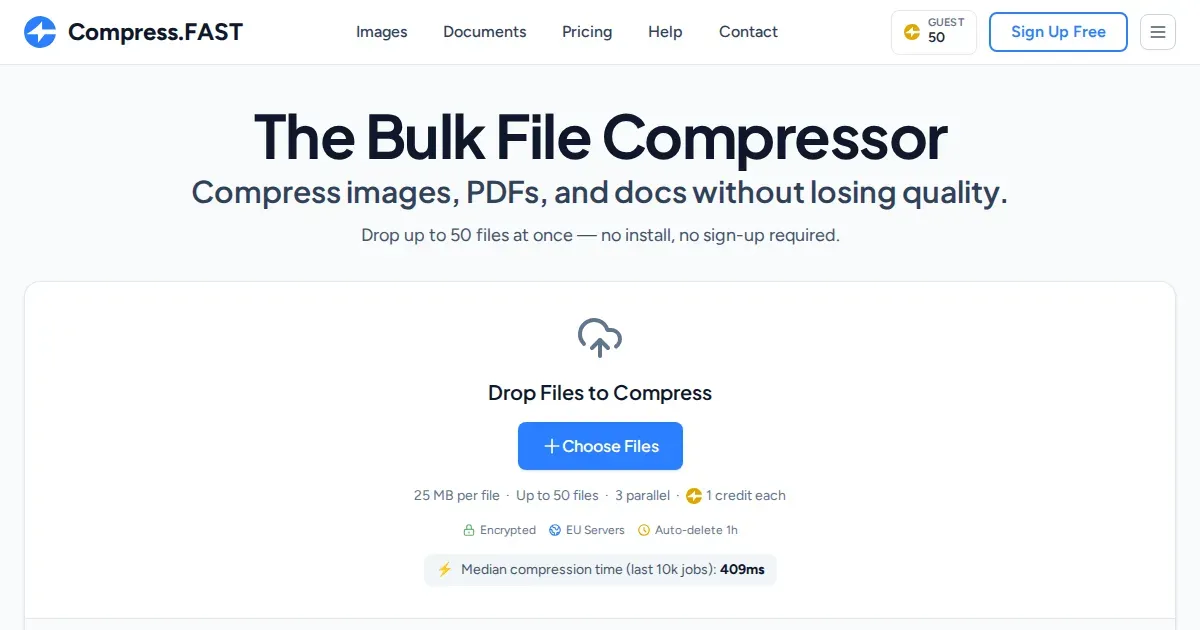Domain Rating Explained: A Founder's Guide to Building DR
Learn what Domain Rating means for startups and how to build domain authority. Practical strategies for founders to improve DR and boost organic traffic.

What Is Domain Rating? A Practical Guide for Founders
When you're building a SaaS product or startup, understanding Domain Rating can make the difference between organic traffic that fuels growth and struggling to be found in search results.
Understanding Domain Rating
Domain Rating (DR) is Ahrefs' metric for measuring the strength of your website's backlink profile on a scale of 0-100. The higher your score, the more authoritative search engines consider your domain.
The calculation focuses on who links to your site and the quality of those linking domains. A single backlink from a high-authority site like TechCrunch carries significantly more weight than dozens of links from low-quality sources. This means quality matters far more than quantity when building your backlink profile.
Why Domain Rating Matters for Startups
For early-stage companies and indie makers, DR directly impacts your ability to compete in search results. When you're competing against established players with years of content and backlinks, a solid domain rating helps level the playing field.
Organic traffic acquisition: Higher DR typically correlates with better search rankings. For bootstrapped founders watching budgets carefully, organic traffic through SEO can become one of the most cost-effective growth channels over time.
Business credibility: Other companies and publications often check domain metrics before considering partnerships, guest posts, or collaborations. A respectable DR signals that you're building something sustainable.
Long-term value: While paid advertising stops the moment you stop paying, the domain authority you build today continues delivering traffic months and years later.
Domain Rating Benchmarks
Understanding where you stand helps set realistic goals:
| Domain Rating | What It Means | Typical Site Examples | Time to Achieve |
|---|---|---|---|
| 0-10 | Brand new site, minimal backlinks | New side projects, fresh domains | Day 1 - Month 3 |
| 10-25 | Early traction, growing link profile | Active startups with basic SEO | Month 3 - 6 |
| 25-40 | Meaningful momentum, consistent efforts | Growing SaaS companies | Month 6 - 18 |
| 40-60 | Established authority in niche | Successful startups, category leaders | Year 2 - 3 |
| 60-75 | Industry heavyweight status | Major tech companies | Year 3+ |
| 75-100 | Reserved for major platforms | Google, GitHub, major media outlets | Decade+ |
For a startup that launched six months ago, reaching DR 15-20 represents solid progress. The key is consistent improvement rather than comparing yourself to companies that have been building authority for years.
Effective Strategies for Building Domain Rating
Create genuinely useful resources. The foundation of earning quality backlinks is producing content that others want to reference. This includes original research, comprehensive guides, free tools, or data that provides real value to your industry. When Buffer published their salary transparency data, they earned hundreds of natural backlinks because they created something genuinely newsworthy.
Execute strategic launches. Product launches offer excellent opportunities for acquiring quality backlinks. When launching your product, consider submitting to relevant platforms where potential users discover new tools. Launch Directories helps founders identify and submit to the best launch platforms efficiently, allowing you to get discovered across 20-30 relevant directories. Each quality directory listing adds another referring domain to your profile, and when done strategically, the cumulative effect on your DR becomes significant over time.
Contribute to relevant publications. Writing for established sites in your industry serves dual purposes: building relationships with your target audience while earning valuable backlinks. Focus on publications where your ideal customers actually spend time, and pitch content that genuinely helps their readers.
Build relationships in your community. Active participation in relevant communities—whether on Reddit, Indie Hackers, or niche forums—builds connections that naturally lead to mentions and links. The key is providing value consistently rather than promoting your product constantly.
Share your journey openly. Founders who share their metrics, learnings, and experiences publicly tend to get referenced more often. People cite interesting data, unique perspectives, and transparent insights.
Realistic Timeline Expectations
Understanding how long DR growth takes helps set appropriate expectations.
Organically, you're typically looking at 3-6 months to move from DR 0 to DR 20 with consistent effort. Reaching DR 30 might take another 6-12 months of strategic link building and content creation.
Some founders need faster results due to specific timelines—perhaps you're fundraising soon or launching a major feature that requires an SEO foundation. When you need measurable DR improvement on a deadline, services like Increase Domain Rating specialize in strategic backlink acquisition that delivers results within 14 days. They handle the manual outreach and relationship building that would normally take months of your time, letting you focus on building your actual product while your domain authority develops.
Think of it as similar to the difference between paid advertising and content marketing—one provides faster results while the other builds long-term value. Many successful founders use both approaches strategically.
Common Mistakes to Avoid
Purchasing low-quality links: This approach can harm your domain rather than help it. Search engines have become sophisticated at detecting unnatural link patterns, and the penalties can set you back significantly.
Prioritizing the metric over results: DR should serve as a leading indicator, not the end goal. A site with DR 30 generating qualified traffic and conversions is more valuable than a site with DR 50 that generates minimal business impact.
Ignoring relevance: A backlink from a high-DR site in a completely unrelated industry provides less value than you might expect. Links from topically relevant sites in your niche carry more weight.
Delaying your start: Domain authority builds over time through consistent effort. Starting early, even with small steps, compounds significantly over months and years.
Essential Tools for Tracking Progress
Ahrefs remains the industry standard for DR tracking and comprehensive SEO analysis. The platform starts at $129/month, which makes sense once SEO becomes a meaningful growth channel for your business.
For founders just starting out, consider beginning with free tools:
- Google Search Console (essential for tracking organic performance)
- Ubersuggest (more affordable alternative with basic DR insights)
- Moz's free domain checker (provides quick DA snapshots)
The key is using tools that match your current stage. Most early-stage founders need Google Search Console and one paid tool at most.
Your First 30 Days
Getting started doesn't require a massive time investment. Here's a practical first month:
Week 1: Check your current DR to establish a baseline. Set up Google Search Console if you haven't already. Identify 15-20 sites in your industry that would be valuable backlinks.
Week 2: Create one high-value resource—something people will want to bookmark or reference. This could be a useful calculator, template, original research, or comprehensive guide that fills a real gap.
Week 3: Launch your resource strategically. Share it in relevant communities, submit to appropriate directories, and post on platforms where your audience gathers.
Week 4: Reach out to 10 relevant sites or people who might find your resource valuable. Ask for feedback. Some may link to it naturally, others won't—both outcomes are normal.
Repeat this process monthly and you'll build momentum over time.
The Compounding Effect
Domain authority grows through compounding. Your first referring domain requires significant effort. Your 50th comes more easily. Your 500th often happens naturally as your content library grows and more people discover your work.
This compounding nature is why starting early matters. A founder who begins building domain authority at launch will be in a substantially stronger position after 12 months compared to someone who delays.
Final Thoughts
Domain Rating serves as a useful indicator of your site's authority and your ability to compete in organic search. For resource-conscious startups and indie makers, building DR through strategic content and outreach represents one of the highest-leverage activities for long-term growth.
The approach is straightforward: create valuable content, launch strategically, build genuine relationships, and stay consistent. The results compound over time, creating a foundation for sustainable organic traffic growth.
Your future self will appreciate the effort you invest today in building domain authority while your competitors rely solely on paid acquisition channels.


